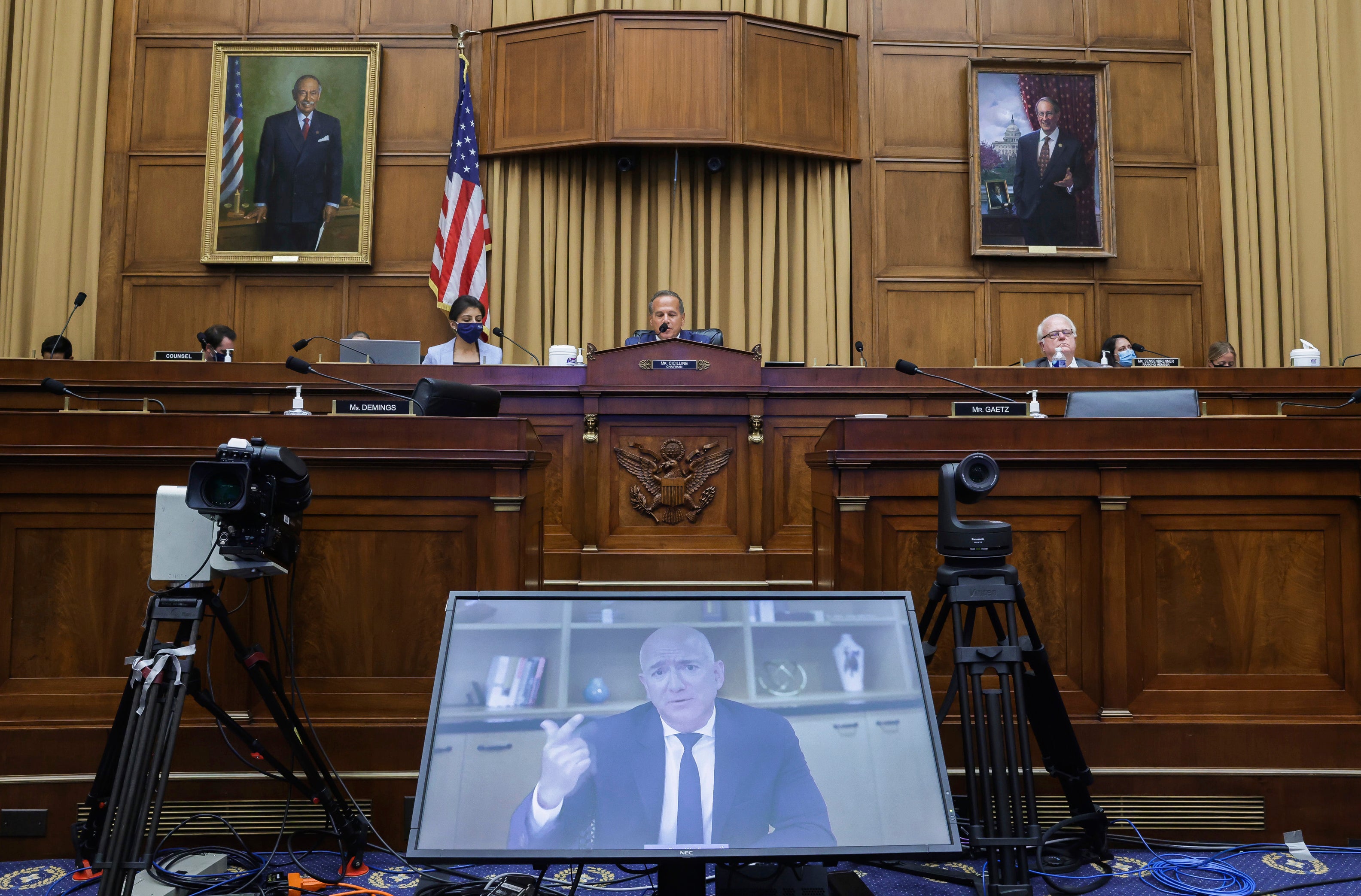Five things to know about the Big Tech antitrust report
After years of calling Big Tech too big, Democratic lawmakers are calling for Congress to rein in Facebook, Google, Amazon and Apple by breaking them up, limiting future mergers and blocking self-dealing that could hurt competitors

Your support helps us to tell the story
From reproductive rights to climate change to Big Tech, The Independent is on the ground when the story is developing. Whether it's investigating the financials of Elon Musk's pro-Trump PAC or producing our latest documentary, 'The A Word', which shines a light on the American women fighting for reproductive rights, we know how important it is to parse out the facts from the messaging.
At such a critical moment in US history, we need reporters on the ground. Your donation allows us to keep sending journalists to speak to both sides of the story.
The Independent is trusted by Americans across the entire political spectrum. And unlike many other quality news outlets, we choose not to lock Americans out of our reporting and analysis with paywalls. We believe quality journalism should be available to everyone, paid for by those who can afford it.
Your support makes all the difference.After years of calling Big Tech too big, Democratic lawmakers are calling for Congress to rein in Facebook Google, Amazon and Apple by breaking them up, limiting future mergers and blocking self-dealing that could hurt competitors.
Those proposals are in a 450-page report issued Tuesday by a House antitrust panel, which undertook a 15-month investigation into the companies’ market dominance. Here are five big takeaways.
MORE BARK THAN BITE?
With the election less than a month away and a new Congress due to be sworn in Jan. 3, there's little chance of action on the report's recommendations this year. But the report offers Congress a roadmap for 2021 should it choose to follow up on the report's proposals, which seems likely should Democrats regain control of both houses of Congress and the presidency.
The Democratic presidential nominee, former Vice President Joe Biden has said that he'd consider company breakups.
MONOPOLY OR MONOPOLY-ISH?
The report said the four companies have abused their market power by charging excessive fees, imposing tough contract terms and extracting valuable data from individuals and businesses that rely on them. But it stopped short of declaring them all monopolists.
The report found that Google holds a monopoly in search and that Facebook has monopoly power in social networking. But it merely said that Amazon and Apple have “significant and durable market power” in, respectively, the U.S. online retail market and mobile operating systems and app stores.
BREAKING UP IS HARD TO DO
Forcing the companies to break up would be a radical step for Congress to take with a powerful industry. For decades, the tech giants have enjoyed light-touch regulation and star status in Washington, but have faced growing scrutiny and criticism over issues of competition, consumer privacy, hate speech and their effects on democracy and the political climate.
Still, the companies have powerful lobbies and many of their CEOs retain some star power in Washington. There's little question that the companies would wage an all-out fight against any breakup attempts, and it's not clear how many legislators would choose that path. There are also technological considerations. Facebook, for instance, is in the process of integrating the chat functions of Messenger, Instagram and soon, WhatsApp. Once that's complete, breaking up those platforms gets more difficult.
BYE BYE, BUY BUY BUY
The report attributes the “significant and durable market power” of the companies in large part to “a high volume of acquisitions.” This, it concludes, has led to fewer choices for consumers.
Facebook “used its data advantage to create superior market intelligence to identify nascent competitive threats and then acquire, copy, or kill these firms,” the report states. Google, meanwhile, “maintained its monopoly over general search through a series of anticompetitive tactics” including an “an aggressive campaign to undermine vertical search providers.”
The report suggests placing restrictions, potentially even a ban, on future acquisitions by the companies. It's worth noting, however, that many of the products people rely on would not be what they are today if the companies hadn't acquired them. This is true for Google's YouTube and the technology for its maps and Android, Apple's Siri and Facebook's Instagram and WhatsApp.
ANOTHER REPORT
Though the report was “bipartisan,” Republicans issued their own thoughts Tuesday in a report titled “A Third Way to Take on Big Tech.” Authored by Rep. Ken Buck of Colorado, it called for “targeted” enforcement of existing antitrust laws rather than “onerous and burdensome regulation that kills industry innovation.” It's not hard to guess which option Big Tech would get behind if forced to choose.